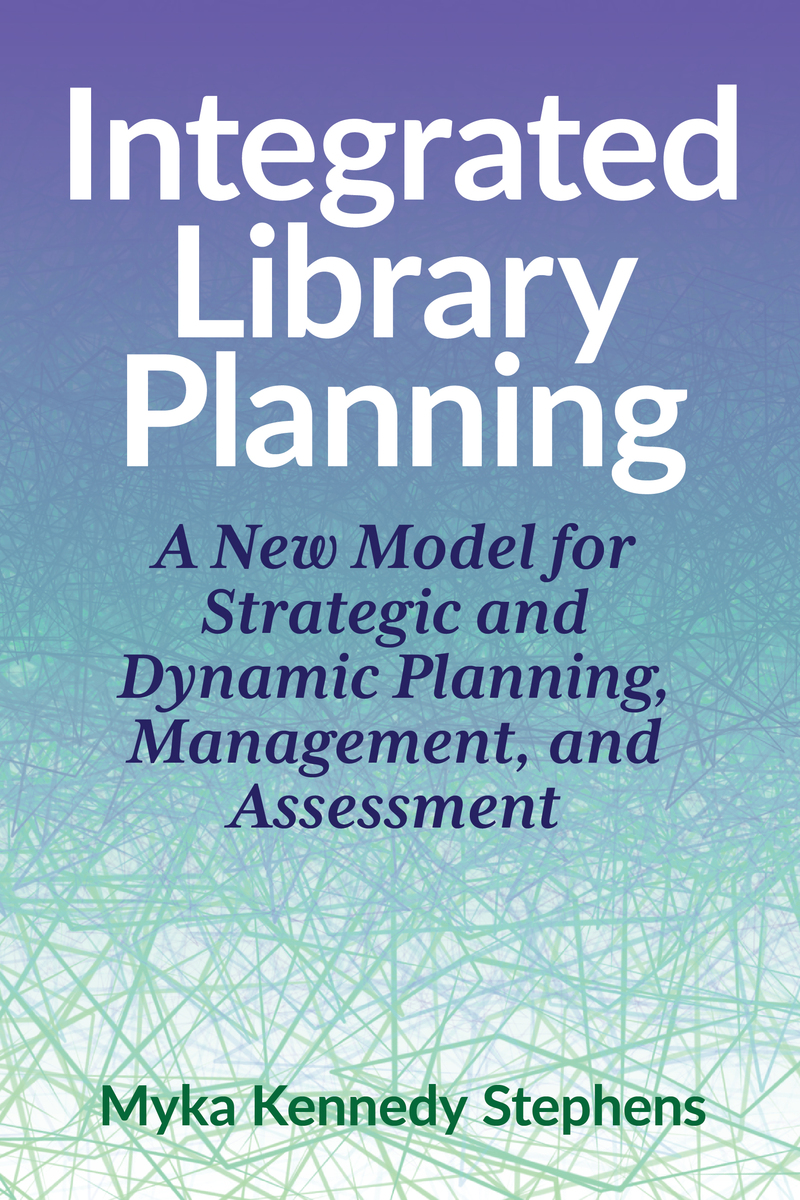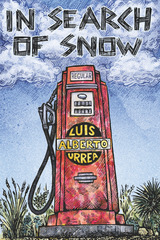Integrated Library Planning: A New Model for Strategic and Dynamic Planning, Management, and Assessment
Assoc of College & Research Libraries, 2023
eISBN: 978-0-8389-3938-3
See other books on: Dynamic | Language Arts & Disciplines | Library & Information Science
See other titles from Assoc of College & Research Libraries
eISBN: 978-0-8389-3938-3
ABOUT THIS BOOK | AUTHOR BIOGRAPHY | TOC
ABOUT THIS BOOK
Many library project plans, from small projects to institution-wide strategic planning committees, follow a linear trajectory: create the plan, do the plan, then review the outcome. While this can be effective, it also sometimes leads to disregarding new information that emerges while executing the plan, making the outcome less effective. Planning processes can also feel forced and predetermined if stakeholder feedback is not seriously considered. When this happens too many times, people stop offering their honest opinions and new ideas because they have learned that the planners do not really want to hear them.
In a concise seven chapters offering illustrations, charts, sample outlines, and many tools and resources, Integrated Library Planning offers a different kind of approach to planning that is both strategic and dynamic. It is fueled by open communication, honest assessment, and astute observation. Voices at the table, near the table, and far from the table are heard and considered. Its perpetual rhythm gives space to consider new information when it emerges and freedom to make changes at a time that makes sense instead of when it is most convenient or expected.
The era of fixed-length strategic plans is coming to an end. Five-year strategic plans had already given way to three-year strategic plans, and now we find ourselves needing to plan and function when nothing is certain beyond the present moment. The components of this model might look deceptively similar to the strategic planning practices used in libraries and organizations for decades; however, when implemented as a whole, with a monthly review cycle on a rolling planning horizon and space for regular analysis of information needs and behavior, it has the potential to shatter any previous notions of planning that serve only to satisfy administrators. Integrated Library Planning can help libraries effectively navigate and become agents of change.
In a concise seven chapters offering illustrations, charts, sample outlines, and many tools and resources, Integrated Library Planning offers a different kind of approach to planning that is both strategic and dynamic. It is fueled by open communication, honest assessment, and astute observation. Voices at the table, near the table, and far from the table are heard and considered. Its perpetual rhythm gives space to consider new information when it emerges and freedom to make changes at a time that makes sense instead of when it is most convenient or expected.
The era of fixed-length strategic plans is coming to an end. Five-year strategic plans had already given way to three-year strategic plans, and now we find ourselves needing to plan and function when nothing is certain beyond the present moment. The components of this model might look deceptively similar to the strategic planning practices used in libraries and organizations for decades; however, when implemented as a whole, with a monthly review cycle on a rolling planning horizon and space for regular analysis of information needs and behavior, it has the potential to shatter any previous notions of planning that serve only to satisfy administrators. Integrated Library Planning can help libraries effectively navigate and become agents of change.
See other books on: Dynamic | Language Arts & Disciplines | Library & Information Science
See other titles from Assoc of College & Research Libraries












